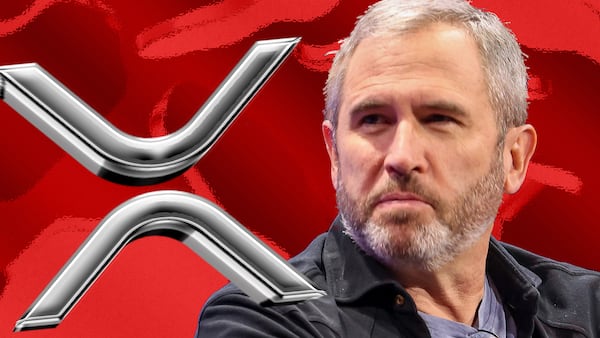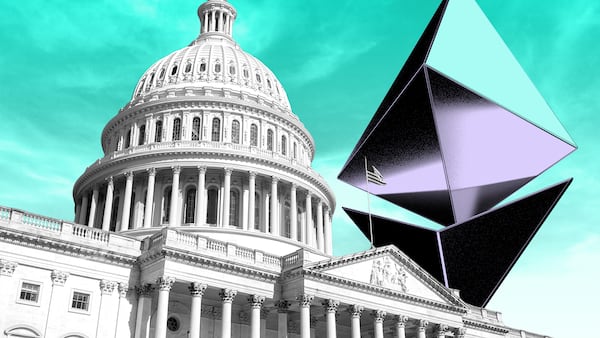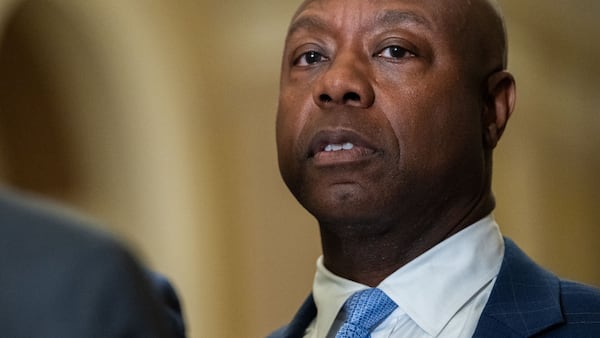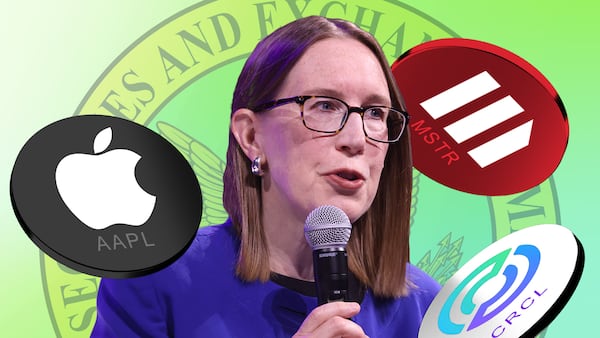- SEC Chair Paul Atkins said the SEC is embarking on a deregulatory blitz dubbed “Project Crypto.”
- Companies “are lined up at our doors with requests to tokenise,” he said.
- Financial “super-apps” are also a priority.
Securities and Exchange Commission Chair Paul Atkins announced a deregulation blitz dubbed “Project Crypto” on Thursday that could turbocharge the integration of traditional financial markets with blockchain technology and enable the creation of financial “super-apps.”
Paul Atkins said his “plan for crypto market primacy” will consider benefits and risks of “moving our markets from an off-chain environment to an on-chain one.”
Atkins’ speech came a day after the president’s Working Group on Digital Asset Markets unveiled a long-awaited, 160-page report recommending policies to fulfill Donald Trump’s campaign promise to make the US the “crypto capital of the world.”
Atkins said he had directed SEC staff to develop proposals to implement the working group’s recommendations.
The proposals should address lingering confusion over the regulatory status of crypto assets, make it easier for traditional financial institutions to hold crypto on customers’ behalf, enable the creation of all-in-one financial “super-apps,” and “unleash the potential of on-chain software systems in our securities markets.”
“Many of the Commission’s legacy rules and regulations do not make sense in the twenty-first century—let alone for on-chain markets,” Atkins said.
Former SEC chair and Atkins’ predecessor, Gary Gensler, repeatedly said the vast majority of crypto assets were securities, like stocks and bonds.
Securities are subject to expensive registration and disclosure requirements, and Gensler’s SEC brought dozens of lawsuits against crypto companies for their failure to register with the agency.
“Despite what the SEC has said in the past, most crypto assets are not securities,” Atkins said.
DAOs and foundations
Under Project Crypto, SEC staff will issue new guidelines to make clear which crypto assets qualify as securities, and which do not.
For months, lawmakers urged by Trump have been trying to do the same via so-called market structure regulation. The House of Representatives approved a market structure bill dubbed the Clarity Act last month, and Senators are in the midst of drafting their own competing bill.
While most crypto companies are eager to dodge SEC oversight, some might prefer issuing tokens that come with equity rights, according to Atkins. And he doesn’t want existing SEC regulations to deter them.
“Investors will benefit from the opportunity to earn distributions, voting rights, and other features typical of securities,” the SEC chair said.
“Projects should not be forced to establish decentralised autonomous organisations and offshore foundations or decentralise too early if this is not their desired plan of action.”
To that end, Atkins has asked SEC staff to propose “purpose-fit” disclosures and exemptions for initial coin offerings, airdrops, and network rewards.
Tokenisation and “super-apps”
He also wants to make it easier to issue traditional securities on blockchains.
“Firms—from household names on Wall Street to unicorn tech companies in Silicon Valley—are lined up at our doors with requests to tokenise,” Atkins said.
Moreover, financial firms should be allowed to offer trading in crypto commodities, crypto securities, and traditional securities, as well as staking and lending, without seeking duplicative state and federal licenses, according to the chair.
“A key priority of my chairmanship is to allow market participants to innovate with ‘super-apps,’” Atkins said.
“Securities intermediaries should be able to offer a broad range of products and services under one roof with a single license.”
Other proposals include tweaking SEC guidelines to account for DeFi and to make it easier for traditional financial firms to hold crypto.
“Federal securities laws have always assumed the involvement of intermediaries that require regulation,” he said, “but this does not mean that we should interpose intermediaries … where the markets can function without them.”
Innovation exemption
Atkins said he was also considering an “innovation exemption” that would let entrepreneurs “immediately enter the market with new technologies and business models” without having to comply with “incompatible or burdensome” regulations, so long as they meet certain conditions.
“These conditions may include, for example, a commitment to make periodic reports to the Commission, incorporate whitelisting or ‘verified pool’ functionality, and restrict tokenised securities that do not adhere to a token standard that incorporates compliance features,” he said.
“The days of convoluted offshore corporate structures, decentralisation theater, and confusion over security status, are over.”
Aleks gilbert is DL News’ New York-based DeFi correspondent. You can reach him at aleks@dlnews.com.








